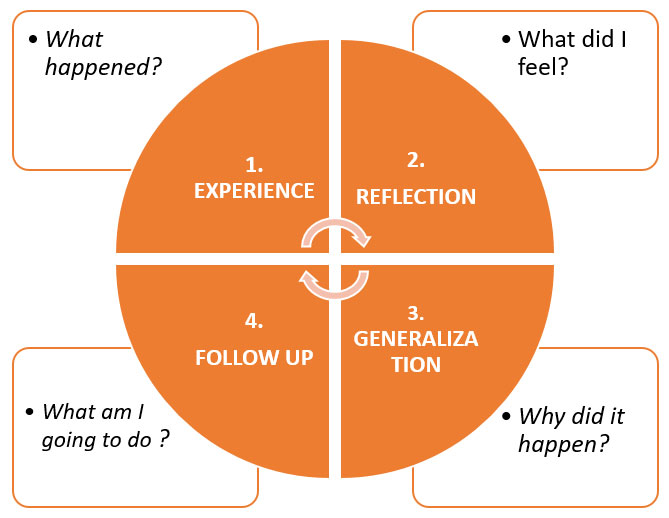
NON-FORMAL EDUCATION
“Tell me and I'll forget.
Show me and I can remember.
Involve me and I'll understand.”
Chinese Proverb
The Ubuntu Leaders Academy is a non-formal education program that uses a pedagogical model, developed by IPAV (Instituto Padre António Vieira), centered on the trainees through a participatory and experiential approach. Based on a methodology that is, in essence, deeply relational and based on non-formal education, it is fully in tune with the principles of the Ubuntu philosophy.
The Ubuntu Leaders Academy aims to promote socio-emotional competencies with a cross-cutting impact on the participants' lives. The creation of a "safe space", where each one feels respected and valued. During the sessions trainers promote peer learning, individual reflection times, sharing times, respect, and cooperation and teamwork.
The training program proposed by the Ubuntu Leaders Academy is flexible, adaptable and constantly under evaluation, in permanent attention and focus on the participants and valuing lifelong learning. In this sense, although it has pre-defined session plans, the development of each session is shaped by the particularities of the group of participants and the concrete challenges of each sociocultural context.
As a non-formal education project, it uses a non- hierarchical approach between facilitators and participants allowing each the responsibility and autonomy in the construction of their own formative process which depends, in large part, on the openness and willingness of each participant to give and to receive. The facilitator’s team is the face and the guarantee of fidelity to the principles of the project, always developing an attitude of respect, of listening, and as Paulo Freire said, "those who teach learn while teaching, and those who learn teach while learning." The facilitator is also tasked with facilitating learning processes and promoting good environment and cohesion of the group undergoing training.
EXPERIENCIAL LEARNING
A lived experience is, we know, a fertile source of learning. Dadid Kolb, in the 1970s, theorized about this by designating it as the "Experiential Learning Cycle", valuing the learning that results from experience and the consequent ascribing of meaning to what is experienced. One learns best when one participates actively in a reflexive process, based on a concrete life experience. Experiential learning can be understood as learning resulting from exploration, creation, discovery, relationship, or interaction with the environment.
Experiential learning cycles in accordance to Dadid Kolb

1] EXPERIENCE
Question: What happened?
Objective:To live an experience
2] REFLECTION
Question: What did I feel?
Objective: To reflect and share how the experience was felt (feelings, thoughts, behaviour etc)
3] GENERALIZATION
Question: Why did it happen?
Objective: To learn from the experience
4] FOLLOW UP
Question: What am I going to do?
Objective: Understand the practical implications of the identified learning and its applicability in life
It is because we believe in the effectiveness of an experience-based learning that in the Ubuntu Leaders Academy we seek to offer, in each session, a set of experiences that arouse curiosity and motivate learners to reflect and learn. We use a variety of tools such as films, documentaries, action-reflection activities, short stories, songs, texts, in order to provide participants with relevant experiences, promoting their individual and collective development. The activities that are proposed are structured based on their pedagogical objectives and intentionality.
LEARNING THROUGH REFERENCE MODELS
“Nothing is as contagious as the example”
The Ubuntu Academy of Leaders also attaches great relevance to learning by reference models. We believe the power an example of life can have, and the inspiration that a story told in the first person can provide. In the full knowledge that no one is perfect and, as Nelson Mandela used to say, saints are those who do not give up trying, reference models allow us to bridge the gap between theory and practice, between the idealized and the possible. This project intends to give visibility and importance to all those who, not being perfect, know how to persevere in the midst of adversity, materializing Ubuntu principles through their choices.
Life testimonies can be very inspiring to the participants allowing the participants to believe that it is possible to hope in a better world. Learning through reference models occurs in three different ways:
1] Ubuntu Leaders–Films, documentaries or testimonies project world renowned leaders whose life and example embody the principles of Ubuntu philosophy, a concrete example of Servant Leadership in their respective contexts, namely: Nelson Mandela; Martin Luther King; Malala; Madre Teresa de Calcutá; Desmond Tutu; Mahatma Gandhi.
2] Community Leaders – The presence of community leaders who, by sharing their life stories, demonstrate how it is possible to be a vehicle for change even in difficult and demanding contexts. The testimony of these guests is usually one of the most impacting moments of the training sessions. In a world where individualism, hatred, war and injustice are so evident and so propagated by the media, it is essential to give voice to those who are everyday "heroes", showing other realities which usually remain hidden.
3] Participants - Through personal storytelling and reflection dynamics, each participant is aware that their own path can be an important source of inspiration for others. The life story of each one, their struggles and victories, become a vehicle of learning and reference, providing an opportunity for growth, a showcase of the pillars that underpin the Ubuntu Method.




